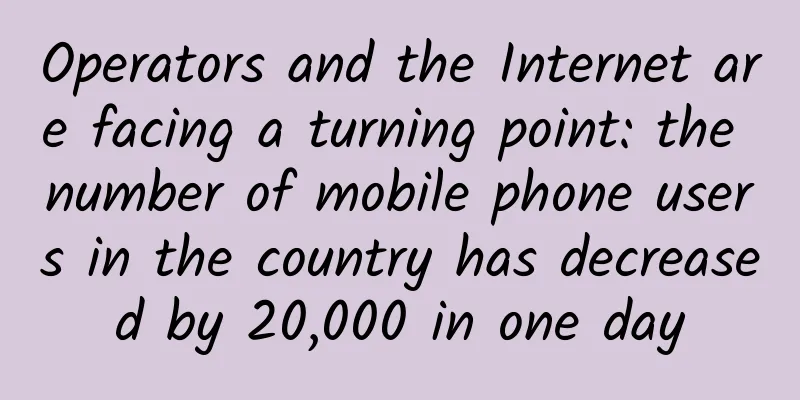The key to managing "big data killing old customers" is to prescribe the right medicine

|
To manage the phenomenon of "big data killing the familiar", it is not to "kill" big data, but to be good at leveraging it to form a joint force of supervision and governance. The regulatory authorities should establish and improve the online supervision platform for big data, and improve the ability to investigate and punish various hidden "big data utilization" illegal behaviors. It is necessary to include the protection of consumer evaluation rights and the use of tourist information into the key supervision and governance categories, upgrade the supervision methods in line with the times, and create a legal environment that allows consumers to "go on a whim" and travel safely. As the National Day approaches, a topic related to online tourism - "Big data killing old customers is prohibited from October 1st" has become a hot search on Weibo. The topic stems from the "Interim Provisions on the Management of Online Tourism Business Services" (hereinafter referred to as the "Provisions") issued by the Ministry of Culture and Tourism, which will be officially implemented on October 1st this year. Article 15 of the "Provisions" clearly states that online tourism operators shall not abuse technical means such as big data analysis to set unfair transaction conditions based on tourists' consumption records, travel preferences, etc., and infringe on the legitimate rights and interests of tourists. This provision is aimed at the "big data killing old customers" behavior that has been criticized in recent years. The arrival of the "big data era" has brought many conveniences to people, but also brought some negative effects, one of which is "big data killing old customers". In the "Interim Provisions on the Management of Online Tourism Business Services" (draft for comments) issued by the Ministry of Culture and Tourism in October last year, the prohibition of "big data killing old customers" was defined as "online tourism operators shall not use big data and other technical means to set differentiated prices for the same product or service under the same conditions for tourists with different consumption characteristics." Combining the two provisions of the Regulations (Draft for Comments) and the Regulations, "Big Data Killing Familiar Customers" can be simply understood as: online travel operators abuse big data analysis methods, use their own information advantages to set higher prices for old customers than new customers, causing old customers to suffer losses. In March last year, a survey result released by the Beijing Consumer Association showed that nearly 90% of the respondents believed that the "Big Data Killing Familiar Customers" phenomenon was widespread, and 56.92% of the respondents said they had experienced "Big Data Killing Familiar Customers". Among them, online shopping, online travel, hotel accommodation, online car-hailing, food delivery, film and television and other consumption scenarios are most likely to be "Big Data Killing Familiar Customers". As the saying goes, "familiarity is precious." In traditional business ethics, familiar customers should enjoy preferential treatment. Unfortunately, in the era of big data, some businesses have gone the other way and started "big data killing familiar customers," specifically making familiar customers suffer. The saying "the person who knows you best hurts you the most" is vividly reflected in the issue of "big data killing familiar customers." When "moral governance" is limited, "rule of law" should step in to provide a guarantee. The release of the "Interim Regulations on the Management of Online Tourism Business Services" fits this realistic context. The "Regulations" clearly prohibit "big data killing familiar customers," which is a reflection of the laws and regulations keeping pace with the times to protect the rights and interests of consumers, and is also evidence of the progress of the rule of law. To prohibit "big data killing old customers", laws alone are not enough, the key lies in implementation. For now, some practical problems need to be solved urgently. On the one hand, the punishment seems insufficient. Article 24 of the "Regulations" states that the cultural and tourism departments can remind, warn, and stop online travel operators who have illegal and irregular business practices such as dishonest operations and abuse of technical means to set unfair trading conditions through administrative guidance such as interviews, and order them to rectify within a time limit. Some "big data killing old customers" have been implemented for a long time and involve many consumers. If they are only handled through administrative guidance, the punishment and deterrence are obviously not enough. On the other hand, although the criteria for determining "big data killing old customers" have been clarified, how to provide evidence and who should provide evidence are still big problems. When consumers and operators have disputes over "big data killing old customers", it is necessary to implement "reversal of the burden of proof", that is, online travel platforms and other operators should prove their innocence. The regulatory authorities cannot ignore the various excuses of online travel operators, such as "the product is inherently flexible", "there are reasons such as payment methods, whether breakfast is included, cancellation policies, different suppliers", "new customers are the price after coupon discounts", etc., but must strictly verify and investigate in accordance with the law. The reason why "big data killing old customers" exists is not only because the platform has data advantages, but also because the market is not open and transparent enough. To govern the phenomenon of "big data killing old customers", it is not to "kill" big data, but to be good at leveraging it to form a joint force of supervision and governance. The regulatory authorities should establish and improve the big data online supervision platform, and improve the ability to investigate and deal with various hidden "big data utilization" violations. It is necessary to actively implement the requirements of the "Regulations", include the protection of consumer evaluation rights and the use of tourist information into the key supervision and governance categories, upgrade the supervision methods in line with the times, effectively safeguard the legitimate rights and interests of consumers, and create a legal environment that allows consumers to "go on a whim" and travel safely. |
Recommend
A detailed introduction to the difference between WiFi5 and WiFi6 network speeds
I believe that most of my friends will fully cons...
315 Gala: Mobile phone cleaning software pushes the elderly into the abyss of fraud
[[387787]] March 15 news: At tonight's 315 Ga...
If 4G construction is "building roads", 5G is actually "building cities"...
"Now that I'm using 5G, I don't thin...
Analysis of the Four Major Disaster Recovery Technologies in Data Centers
Disaster recovery technology means that when a da...
Wi-Fi 6 Development Status and Future Application Trends
Connections are given more profound value in the ...
CloudCone: $69/month-E3-1270v2, 32G memory, 512G SSD, 100M/1Gbps bandwidth, Los Angeles MC data center
We often share information about VPS hosts provid...
2021 Boao Business Forum opens, Ruijie wins the title of Top Ten Innovative Companies of the Year
The "2021 Boao Business Forum" co-organ...
Is 5G not the only option for the Internet of Things?
While the Internet of Things has the potential to...
Five ways to establish effective communication in remote teams
The term "remote" itself has a connotat...
BGPTO: 50% off on Singapore dedicated servers, E3-1230v3/16GB/480G SSD/10M only 325 yuan
BGPTO is a foreign independent server sales site ...
Come to HC to see Huawei "unlock" the "efficient model" for government and enterprises to move from operation and maintenance to operation
[51CTO.com original article] The digital transfor...
It’s 2022, why are there still so many network failures?
Failures happen every year, but this year they ha...
Discussing the future of TOSCA and NFV
Standardization and unification have great advant...
The threat of cyber espionage
[[192125]] The cyber espionage operation, now nam...









